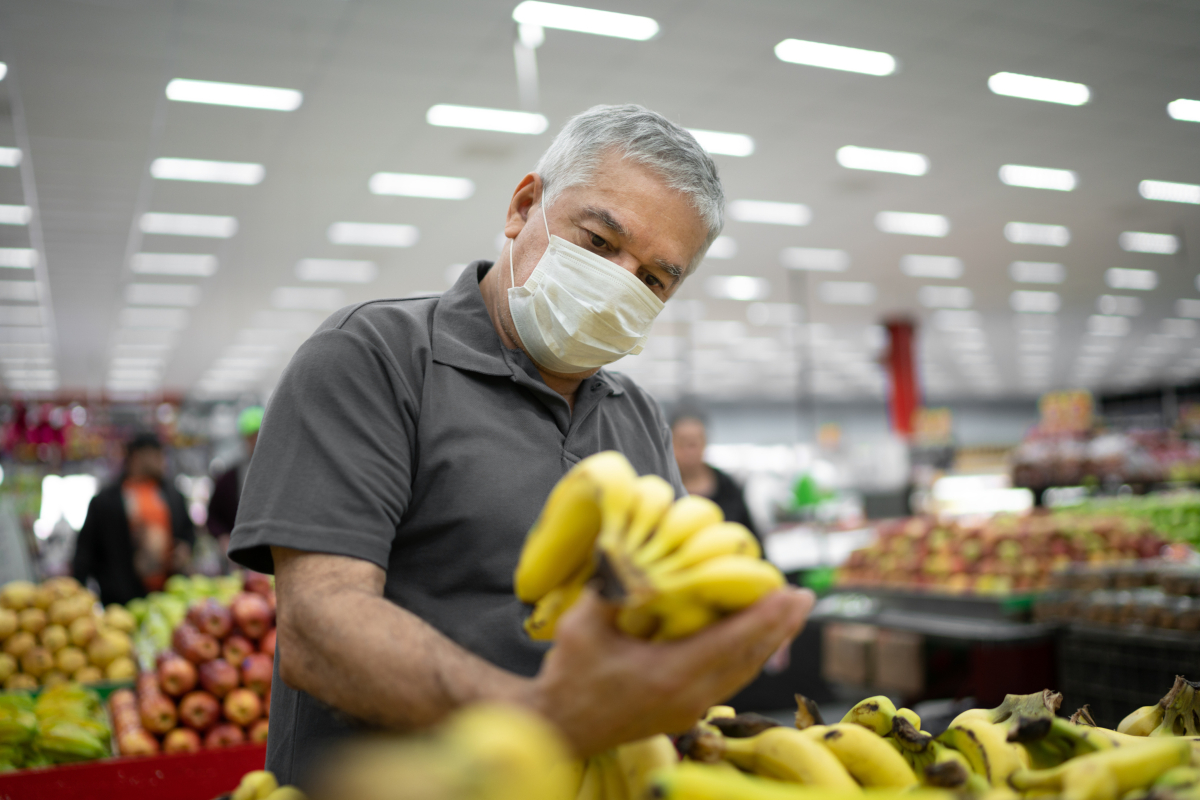The Medical Minute: Separating mask myths from facts

We see and hear new COVID-19 news almost every minute of the day. But separating facts from fiction can get challenging, especially when it comes to masks. We bust some common mask myths with two experts—infectious diseases physician Dr. Catharine Paules with Penn State Health Milton S. Hershey Medical Center and pediatric allergist and immunologist Dr. Tracy Fausnight with Penn State Health Children’s Hospital.
Myth: We didn’t need masks early in the pandemic, so we don’t need them now.
Fact: Very little data existed prior to COVID-19 to assess whether masks are useful to prevent community transmission of respiratory viruses. This, combined with the relatively low number of COVID-19 cases early on and concerns about potential global mask shortages, stopped U.S. health officials from recommending masks. Recently it has become clear that asymptomatic people can transmit COVID-19 from speaking, coughing or sneezing. These individuals are highly likely to spread COVID-19 to others because they feel well and may not be limiting their actions in the community. This led to public health officials strongly recommending masks to prevent COVID-19 spread from individuals who do not know they are infected.
Myth: No studies exist about the effectiveness of masks.
Fact: “Several observational studies published since the COVID-19 pandemic began show emerging data that masks coupled with other distancing measures help to prevent the transmission of COVID-19,” Paules said.
Myth: Wearing a mask prevents oxygen from getting into the lungs.
Fact: Surgical masks and cloth face coverings allow some air to flow in and out of the lungs. They will not cause hypoxia (oxygen deprivation). Surgeons routinely wear masks for several hours during procedures without developing lung problems. Even some patients with chronic lung disease wear masks for protection. “The Cystic Fibrosis (CF) Foundation recommends surgical masks for all CF patients during doctor’s visits,” Fausnight said.
Myth: Masks trap in bacteria and fungus and make people more susceptible to bacterial or fungal pneumonia.
Fact: “There is no data to support this statement,” Paules said. In fact, health care providers ask patients at high risk for fungal infections, such as oncology patients, to wear masks for protection. Meantime, it is important to wear your mask correctly (over the nose and mouth) and refrain from touching your face, as failure to follow these steps can promote the spread of viral infections.
Myth: Masks won’t keep me from getting sick.
Fact: Masks do help keep you from getting sick but they are even more effective at preventing somebody else from getting sick. They inhibit some of an infected person’s droplets from spreading. This is especially important for people who either have no COVID-19 symptoms or have symptoms so mild that they don’t realize they are infected. “Wearing a mask is a way to say, ‘I care about you,’ to those around you,” Fausnight said. However, masks alone aren’t a complete savior. Social distancing and hand hygiene also play crucial roles in preventing the spread of COVID-19.
Myth: Masks weaken the immune system.
Fact: The immune system is exposed to germs all the time. Wearing a mask doesn’t prevent it from “remembering” all of those prior exposures and staying strong
Myth: We don’t need masks. We need herd immunity.
Fact: Herd immunity works only if about 70 percent of the total population has COVID-19 from either a past infection or from a vaccine. Getting to that 70 percent comes at a substantial cost: a catastrophic number of deaths due to COVID-19. That’s why it’s important to prevent the spread of COVID-19 whenever possible until effective treatments or a vaccine are found.
One “myth” that has some truth—wearing a mask can cause some people anxiety and a sense of claustrophobia. But it can be conquered. “Try wearing a mask at home for short periods of time,” Paules said. “Then you can gradually build up to wearing it for a whole trip to the grocery store, for example.”
Related Content:
The Medical Minute is a weekly health news feature produced by Penn State Health. Articles feature the expertise of faculty, physicians and staff, and are designed to offer timely, relevant health information of interest to a broad audience.
If you're having trouble accessing this content, or would like it in another format, please email Penn State Health Marketing & Communications.
